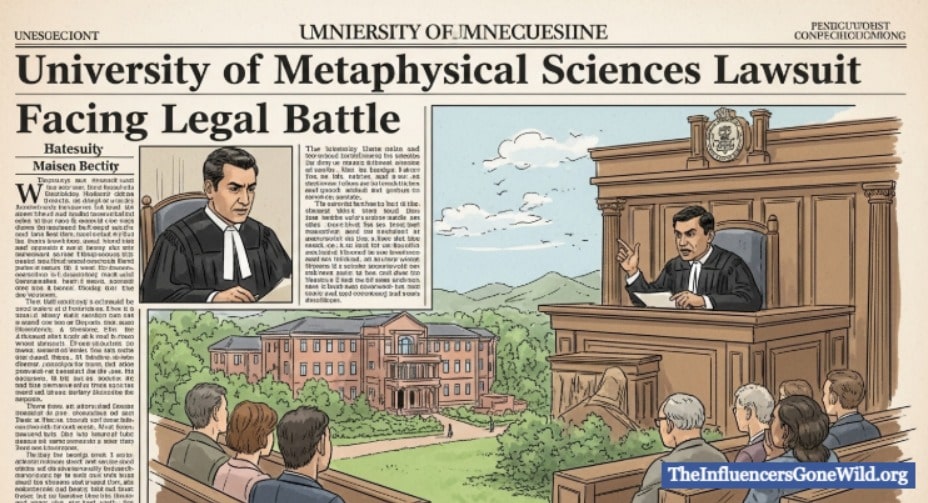Introduction
In recent years, social media has gone from a place to connect with friends to a critical battleground for truth, privacy, and legal responsibility.
The Drive Social Media lawsuit represents a significant turning point in the ongoing debate over how marketing firms, platforms, and digital influencers handle data, compliance, and ethical advertising practices.
For businesses, consumers, and legal experts alike, the unfolding Drive Social Media lawsuit reveals the complexities of the digital marketing landscape, raising key questions about free speech, transparency, and consumer protection.
In this article, we break down everything you need to know: what the lawsuit is about, who is involved, the implications for users and brands, and what lessons can be learned moving forward.
What Is Drive Social Media?

Drive Social Media is a prominent digital marketing agency based in the United States that offers services ranging from branding and web development to targeted digital ad campaigns. The company gained rapid growth for its aggressive marketing strategies and results-driven approach.
What Sparked the Drive Social Media Lawsuit?
The Drive Social Media lawsuit began when several clients and former employees alleged unethical practices, breach of contract, deceptive marketing claims, and in some cases, misuse of client data. The claims varied, but they centered around:
- False advertising of ROI metrics
- Failure to deliver promised services
- High-pressure sales tactics
- Non-transparent billing structures
- Misuse or mishandling of client data
These claims have brought national attention, especially as legal filings revealed a pattern of disputes with former clients and whistleblower reports from ex-staff.
Key Allegations in the Drive Social Media Lawsuit
1. Misleading Performance Metrics
One of the primary issues is the accusation that Drive Social Media overstated the effectiveness of its advertising campaigns. Clients argue that the reported ROI did not match actual revenue generated and that dashboards were allegedly manipulated to reflect inflated performance.
Example: One plaintiff claimed a 500% ROI was reported by Drive, while their internal financials showed losses during the same quarter.
2. Breach of Contract
Several lawsuits claim that Drive failed to fulfill its service agreements. This included:
- Not launching campaigns on time
- Failure to meet KPIs
- Poor communication and lack of transparency
3. Aggressive Sales Tactics
Multiple former clients describe being locked into long-term contracts under high-pressure scenarios, with limited ability to exit due to harsh cancellation clauses.
4. Data Privacy Concerns
There were also concerns that Drive mishandled sensitive customer data or used third-party tracking tools without explicit consent. While these allegations are still under investigation, they reflect broader concerns about digital privacy in marketing.
Timeline of the Drive Social Media Lawsuit
| Date | Event |
| Q1 2023 | First public complaint from a former client surfaces on social media |
| Q2 2023 | Whistleblower files report to FTC |
| Q3 2023 | Class action lawsuit is filed in Missouri |
| Q4 2023 | Drive Social Media responds with counterclaims and legal defenses |
| Q1 2024 | Additional plaintiffs join, expanding scope of the lawsuit |
| Q2 2024 | Initial court hearings begin |
| Q3 2024 | Investigation into data privacy allegations escalates |
| Q1 2025 | Lawsuit is still ongoing with potential regulatory involvement |
The Legal Framework Behind the Drive Social Media Lawsuit
Relevant Laws Involved
- Federal Trade Commission Act (FTC Act): Covers deceptive advertising and data practices.
- Consumer Protection Laws: Vary by state but often deal with contract enforcement and business ethics.
- Data Privacy Regulations: GDPR (if European clients are involved), CCPA (California), and other emerging state-level laws.
Class Action Dynamics
The class-action component of the Drive Social Media lawsuit allows multiple plaintiffs to band together. This typically strengthens the case and increases pressure on the defendant.
Potential Legal Outcomes
- Fines or penalties
- Restitution to clients
- Operational changes within Drive Social Media
- Long-term legal precedents for digital marketing firms
Real-World Impact of the Drive Social Media Lawsuit
1. For Clients and Businesses
- Increased scrutiny of digital agency contracts
- Push toward performance-based partnerships
- Emphasis on data ownership and transparency clauses
2. For Digital Marketers
- The lawsuit could establish new norms for ROI reporting
- May lead to a regulation requiring clearer data usage disclosures
3. For Consumers
- Greater awareness of how personal data is tracked
- Possibility of improved digital rights protections
Lessons Learned from the Drive Social Media Lawsuit
How Businesses Can Protect Themselves
- Thoroughly review all contracts and scope-of-work documents
- Request transparent reporting structures
- Verify ROI claims using internal systems
- Establish clear exit clauses in case of non-performance
Best Practices for Agencies Moving Forward
- Maintain clear and honest client communications
- Provide unaltered access to campaign data
- Avoid manipulative or aggressive sales strategies
- Ensure full compliance with data laws
Drive Social Media Lawsuit and Industry-Wide Trends

This lawsuit isn’t occurring in isolation. It reflects larger industry patterns:
- Growing demand for accountability
- Shift toward ethical marketing practices
- Increasing role of legal oversight in the digital ad space
We’re entering a new era where digital marketers must not only deliver results but also uphold ethical standards and legal compliance.
Conclusion
The Drive Social Media lawsuit is more than a legal battle, it’s a mirror to a fast-evolving industry that’s struggling to balance innovation with integrity.
Whether you’re a business owner, digital marketer, or everyday consumer, this case offers valuable insights into transparency, accountability, and the future of online marketing.
As the lawsuit continues to unfold, its outcomes may shape the legal and operational standards of marketing agencies nationwide. Keeping an eye on the case — and learning from its lessons — is essential for anyone navigating the digital world today.
FAQs
What is the Drive Social Media lawsuit about?
It involves allegations of false advertising, breach of contract, unethical sales tactics, and potential data privacy violations against Drive Social Media.
Who filed the Drive Social Media lawsuit?
Multiple former clients and ex-employees initiated the case, with some filing under a class-action status.
Is Drive Social Media still operating during the lawsuit?
Yes, as of now, Drive Social Media continues operations but is facing reputational and legal challenges.
What are the possible consequences of the lawsuit?
Drive could face financial penalties, be required to compensate clients, or be subject to stricter industry regulations.
How does this lawsuit affect the marketing industry?
It highlights the need for transparency, ethical standards, and compliance with consumer protection and data privacy laws in digital marketing.



